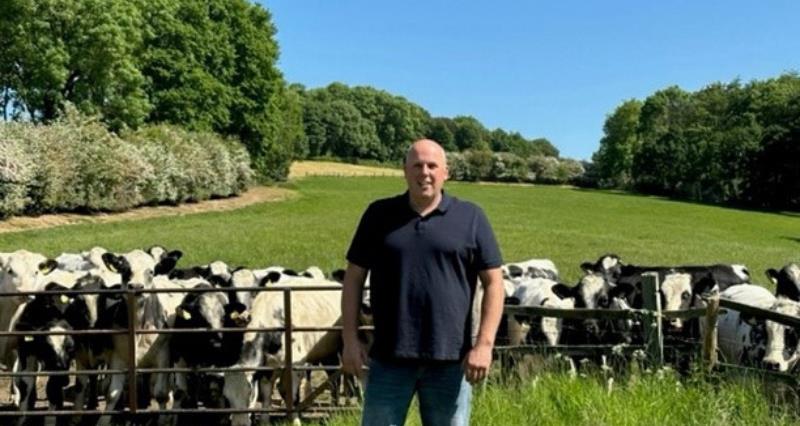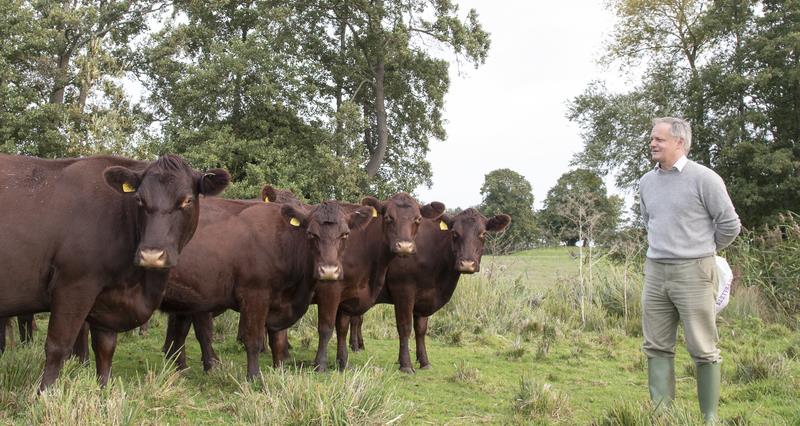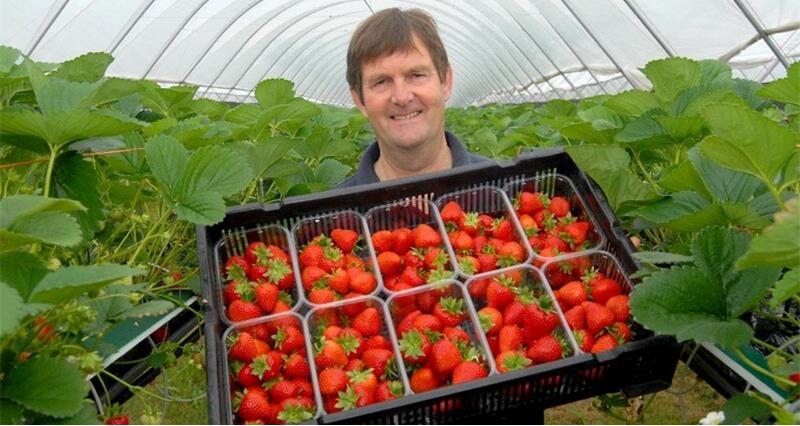We farm around 400 acres in Rotherham, South Yorkshire, on heavy clay open cast land on the Fitzwilliam Estate.
The farm is predominantly grass but also produces wheat, spring barley and OSR which is either sold or goes to make home produced rations for the beef and pig enterprises. The pigs are sold to local butchers and the beef is supplied to Waitrose through Dovecote Park. Waitrose demand the highest standards which appeals to us as we are trying to produce the best quality, sustainable British food.
Getting started
We undertook a carbon audit to get a foot on the ladder of reducing our emissions. We would advise other farmers to give it a try. It’s not particularly difficult or time consuming and is generally free. We used which was geared to livestock production, and it highlighted areas that we do well as well as parts of the business that could be improved.
We obtained funding for in-depth soil analyses as a member of the Dearne Valley Farmers Cluster. This highlighted some areas for improvement in efficiency, especially in correcting pH, available soil nitrogen and organic matter.
Some fields have an organic carbon stock of 84t/ha and high nitrogen reserves meaning that our animals are grazed on permanent pastures and long-term grass clover leys with zero bagged nitrogen and no pesticide use, reducing our carbon emissions and increasing our sequestration.
“We undertook a carbon audit to get a foot on the ladder of reducing our emissions. We would advise other farmers to give it a try."
NFU Member Chris Pearson
The farm stores carbon with 8.5km of hedges, 10km of woodland edges and 10ha of buffer strips. We have wild bird food plots, newly planted trees and flower meadows which boost biodiversity.
We are also tracking soil organic matter, improving feed efficacy, reducing cultivation, using biomass for heating, increasing use of clover and taking marginal areas out of production to create wildlife habitats. All of this lowers the carbon footprint of the business so the farm can generate more saleable products per input, which is great for us, our customers and the environment.



